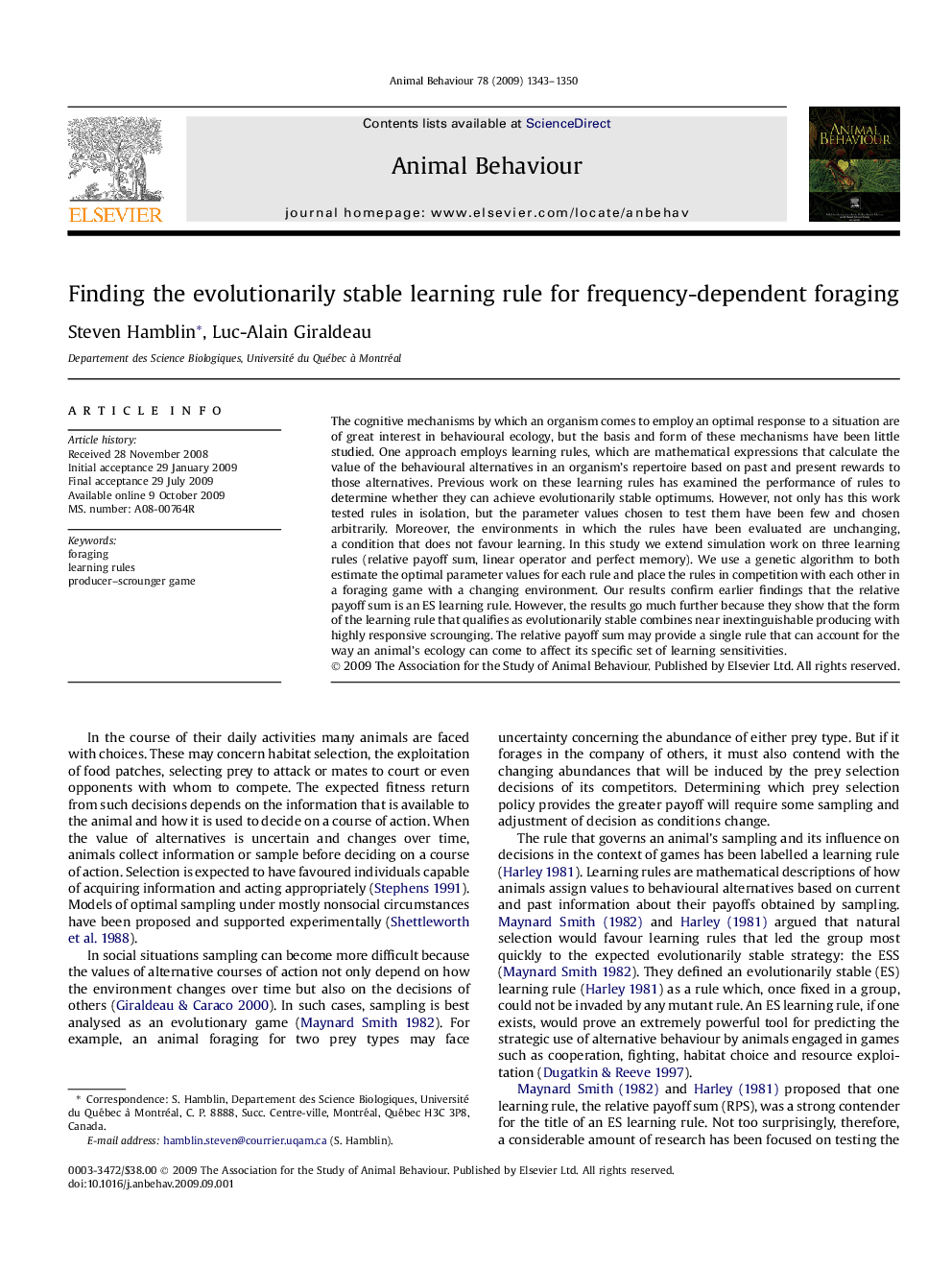| Article ID | Journal | Published Year | Pages | File Type |
|---|---|---|---|---|
| 2417545 | Animal Behaviour | 2009 | 8 Pages |
The cognitive mechanisms by which an organism comes to employ an optimal response to a situation are of great interest in behavioural ecology, but the basis and form of these mechanisms have been little studied. One approach employs learning rules, which are mathematical expressions that calculate the value of the behavioural alternatives in an organism's repertoire based on past and present rewards to those alternatives. Previous work on these learning rules has examined the performance of rules to determine whether they can achieve evolutionarily stable optimums. However, not only has this work tested rules in isolation, but the parameter values chosen to test them have been few and chosen arbitrarily. Moreover, the environments in which the rules have been evaluated are unchanging, a condition that does not favour learning. In this study we extend simulation work on three learning rules (relative payoff sum, linear operator and perfect memory). We use a genetic algorithm to both estimate the optimal parameter values for each rule and place the rules in competition with each other in a foraging game with a changing environment. Our results confirm earlier findings that the relative payoff sum is an ES learning rule. However, the results go much further because they show that the form of the learning rule that qualifies as evolutionarily stable combines near inextinguishable producing with highly responsive scrounging. The relative payoff sum may provide a single rule that can account for the way an animal's ecology can come to affect its specific set of learning sensitivities.
